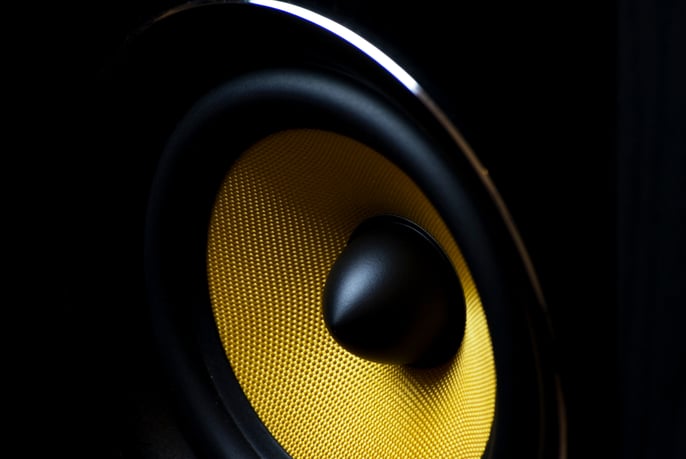
Migraine sufferers are accustomed to the pain and light sensitivity that accompany attacks. Around 75 percent also experience noise sensitivity, which includes quiet sounds as well as loud. Studies show this affects male and female patients although women are more sensitive to sound. Patients older than 60 years have lower sound sensitivity levels, possibly caused by compromised hearing. Some patients find they lose the ability to hear for the duration of the migraine, while others discover loud noises trigger migraines or worsen the pain.
A solution is to reduce the amount of noise in your life, particularly during vulnerable periods before and during an attack:
Soundproof Your Home
Sound is a energy that travels through air and solid materials, and because it has longer wave lengths than light it’s harder to block out. Apart from using earplugs, white noise or music to drown out sound, you can try these methods:
- Reduce the entry of sound: Block the paths noise takes to your location with extra layers of window glazing. Create good window seals by installing gaskets and caulking. Ensure airtight ducts and cable/electrical outlets using sealing materials designed specifically for noise insulation.
- Absorb and dampen: Minimize noise by using rubber-type materials to “soak up” sound and avoid acoustic vibrations. Fit heavy, thick and solid doors instead of hollow panels, or add materials such as fiberglass, neoprene rubber or mass-loaded vinyl between walls to reduce vibration.
- Implement acoustic decoupling: Build a small room for your use inside a larger one, and line walls with noise reduction materials. Ensure the two structures don’t touch each other to avoid transmission of sound and vibration through the walls.
These actions might seem extreme and expensive, but they will provide you with the added benefit of excellent temperature insulation and the omission of drafts, so could be promising options for migraineurs.
Avoid “People” Noise
Often sounds that bother migraine patients are caused by others. When you’re out and about, if you find yourself in a crowded environment you might not realize the level of noise you’re experiencing until the headache pain begins.
- In a controlled location: In a venue such as an open plan office, a device like Yacker Tracker sound monitor will alert you when sound reaches a preset level. You can then ask colleagues to keep it down or leave the room for a period. The device provides both visual and audible alerts depending on your preference.
- In a crowded location: If you regularly experience inconveniences such as a group of teens hanging about outside your home creating a noise, use a sonic deterrent such as the Mosquito, which delivers a high-frequency signal most people older than 25 won’t hear. If you’d rather not spend money on deterrents, try playing music the group won’t enjoy!
- At the movie theater: Ask for headphones for people with hearing loss. In most instances these are free of charge, and they deliver the sound of the film without the surrounding noises from the audience. Your local theater website should show those venues offering listening devices for patrons.
Reduce Vehicle Noises
Cars and other transport methods can be noisy and irritating, and developing a migraine headache during your commute is inconvenient.
- While traveling: Motorcyclists can purchase a helmet that uses anti-noise technology or a wind blocker. For car owners, regular servicing of vehicles with white lithium grease will reduce the creaking of wheel joints and moving parts. Sound proof the car interior, and install quiet, all-season tires to reduce sound from the roadway. Keep tow hitches well-greased, and fit anti-rattle towing equipment to lower the volume of your ride.
- For vehicle protection: Few sounds are as distressing as a car alarm, and if yours has the propensity to sound whenever a breeze blows fitting a system that sends a silent alert to your mobile phone or remote unit could provide peace of mind without the volume.
Prevent Sleep Disturbances
Getting enough restful sleep is vital for migraine patients, so it’s important to prevent household sounds disturbing you or jarring you awake.
- Soften family footsteps: Well-placed rugs can help soften the noise of family members moving around the house. Even the sound of a pet strolling to another room can keep a sensitive patient awake and potentially trigger a migraine, so cover those hardwood floors with suitable materials.
- Reduce household sounds: Keep all household door hinges well-oiled to prevent squeaks. Install a soft-closing toilet seat with slow-lowering hinges to avoid slamming in the bathroom. Glue thin slices of corking inside your cupboard doors to ensure a cushioned closure. Fit anti-vibration Sorbothane pads to washers and dryers, so if they run overnight you won’t hear them.
Eliminating noise from your life completely might be challenging, but these tips will help you to reduce the amount you have to deal with.

